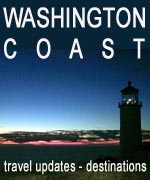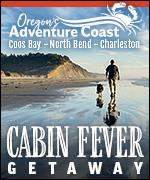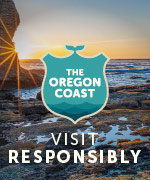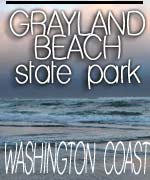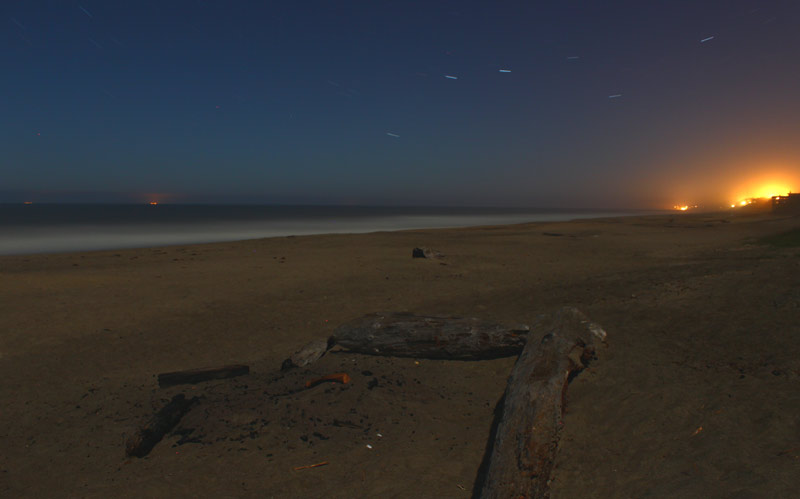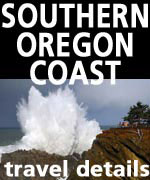5-Planet Lineup Above Oregon / Washington Coast: Jupiter, Mars, Uranus, Venus, Mercury
Published 03/27/23 at 6:40 PM
By Oregon Coast Beach Connection staff
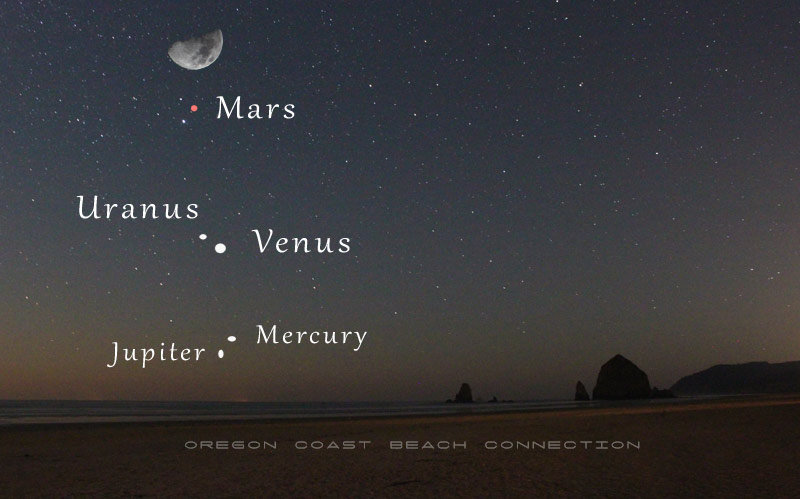
Includes exclusive listings; some specials in winter
In Cannon Beach:
Includes rentals not listed anywhere else
In Manzanita, Wheeler, Rockaway Beach:
Some specials for winter
In Pacific City, Oceanside:
Some specials for winter
In Lincoln City:
Some specials for winter
In Depoe Bay, Gleneden Beach:
Some specials for winter
In Newport:
Look for some specials
In Waldport
Some specials for winter
In Yachats, Florence
Some specials for winter
Southern Oregon Coast Hotels / Lodgings
Reedsport to Brookings, places to stay; winter deals
(Astoria, Oregon) – If the clouds finally break (and they mayy periodically), the Oregon coast and Washington coast will get to see a very rare show of planets. Tonight through Thursday brings a showing of Mercury, Venus, Mars, Jupiter and Uranus into the western skies, all jumbled quite close to each other and near the moon. (All photos Oregon Coast Beach Connection)
The weather forecasts for the bulk of the Pacific Northwest won't cooperate most of the time, but some cloud breaks will happen on occasion tonight (Monday) and Tuesday night – which is the best night to spot these planets. There's great news in this for photographers along the Oregon coast or Washington coast, as the whole astronomical shebang takes place in the western skies – which means right over the ocean.
To boot, these five of our solar system buddies are best viewed shortly after dusk, so those with the right camera gear will get an eyeful (or lens-full) of blue hour as they line up near the moon.
Washington Coast Weather - Oregon Coast Weather
Oregon Coast Road, Traffic Conditions, Updates
Best time to check is within 30 minutes of sunset. Mercury and Jupiter fall below the horizon after that. The entire event stretches from near the horizon to about halfway up the sky.
While it starts tonight, Monday, and runs through Thursday, March 30, the best viewing is tomorrow – Tuesday. Astronomers say look just after dusk and to the west, where a partial moon will be looming a ways above the horizon.
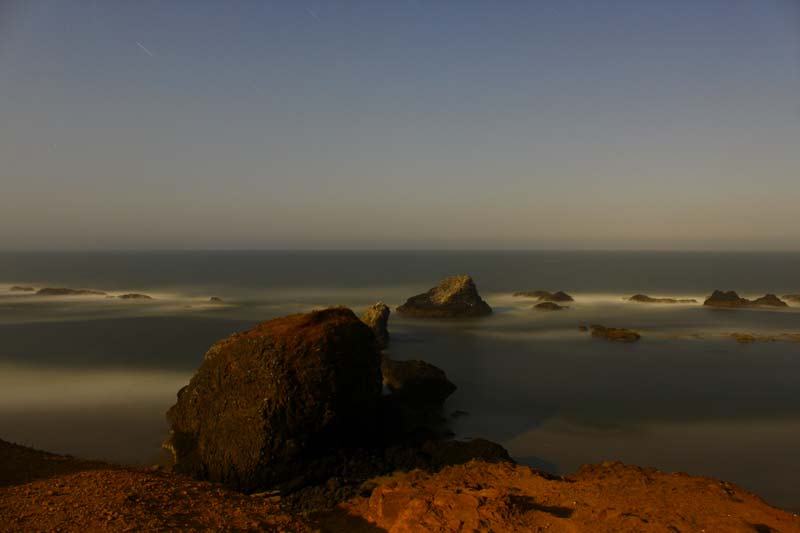
Seal Rock at night
Flat beach spots like Long Beach, Grayland, Seaside, Lincoln City, Horsfall or Nesika will be great for this. Even better photographic moments may come from beaches that have rocky structures jutting up from the sands, creating interesting silhouettes for blue hour photos. These also give the viewer a good hook by which to ID the spot. Those includes Seal Rock, Oceanside, Rialto Beach on the north Washington coast, Cannon Beach or Bandon.
Astronomers say Jupiter, Venus and Mars will all be very bright in the skies and easily identified. But Mercury and Uranus will take binoculars to spot, as they're quite dim. Those photographing will require long exposures anyway, so this will make glimpses of those two easier to find in the final result. Mercury will have quite the reddish glow.
Other planetary line-ups happen on occasion, with different planets being involved. This particular set won't appear together again until 2040.
Oregon Coast Hotels for this event - South Coast Hotels - Where to eat - Maps - Virtual Tours
Cannon Beach Lodging
Nehalem Bay Lodgings
Manzanita Hotels, Lodging
Three Capes Lodging
Pacific City Hotels, Lodging
Lincoln City Lodging
Depoe Bay Lodging
Newport Lodging
Waldport Lodging
Yachats Lodging
Oregon Coast Vacation Rentals
Oregon Coast Lodging Specials
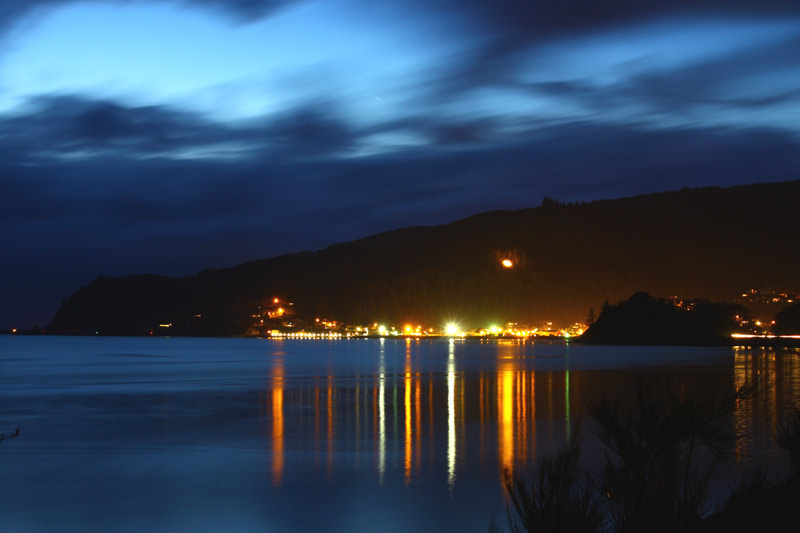
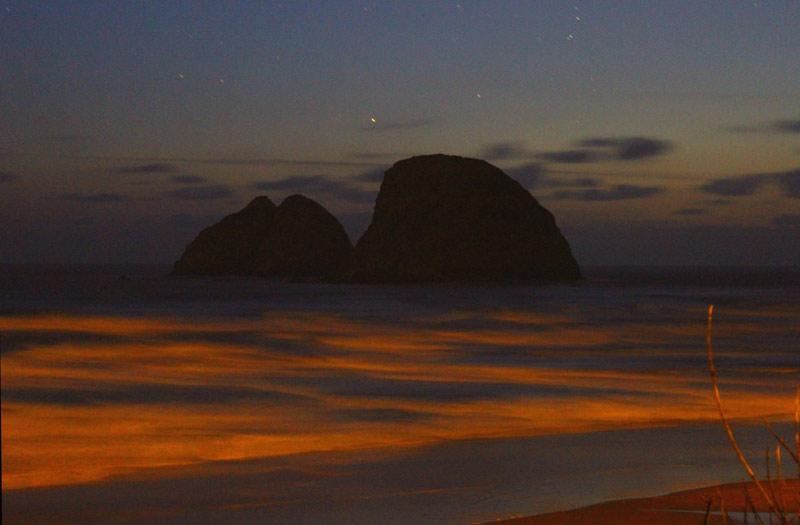
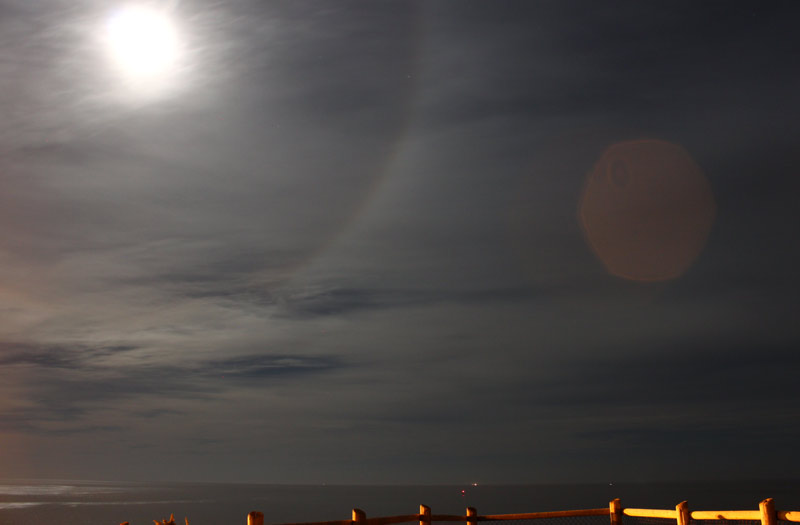
More About Oregon Coast hotels, lodging.....
More About Oregon Coast Restaurants, Dining.....
 Andre' GW Hagestedt is editor, owner and primary photographer / videographer of Oregon Coast Beach Connection, an online publication that sees over 1 million pageviews per month. He is also author of several books about the coast.
Andre' GW Hagestedt is editor, owner and primary photographer / videographer of Oregon Coast Beach Connection, an online publication that sees over 1 million pageviews per month. He is also author of several books about the coast.
LATEST Related Oregon Coast Articles
State park at Port Orford was closed for more than a week
Dramatic Oregon Coast Police Chase Includes Flaming Wheel Through Lincoln Cit...
Chase began in Newport and ended in Lincoln City, over 70 mph. History, true crime
Variety of Oregon State Parks Closed Due to Storm, from Coast to Columbia Gorge
Silverton, Estacada, Coastline and others: several parks damaged or closed. Weather
Final Third of Oregon Coast Given Okay to Start Commercial Crabbing
Majority of the coast began crabbing last week. Marine sciences
S. Oregon Coast Fire Captain Describes Harrowing Rescue at Stranded Ship Near...
Incoming tides, high waves and a ship that was rocking violently. Safety, weather
South Oregon Coast Gets Yummy: Charleston Crab Feed, Robert Burns Celebration
22nd Annual Burns event Feb 7; 41st Charleston Crab Feed Feb 14. Coos Bay events
Oregon Coast Science, Nature, Science of Pacific Ocean
Search over 10,500 pages: marine sciences, astronomy, geology, latest updates and articles
UPDATE: Manzanita Declares State of Emergency After N. Oregon Coast Rains Beg...
Heavy rains saturated city-owned property, has begun to move. Weather
Back to Oregon Coast
Contact Advertise on Oregon Coast Beach Connection
All Content, unless otherwise attributed, copyright Oregon Coast Beach Connection. Unauthorized use or publication is not permitted





